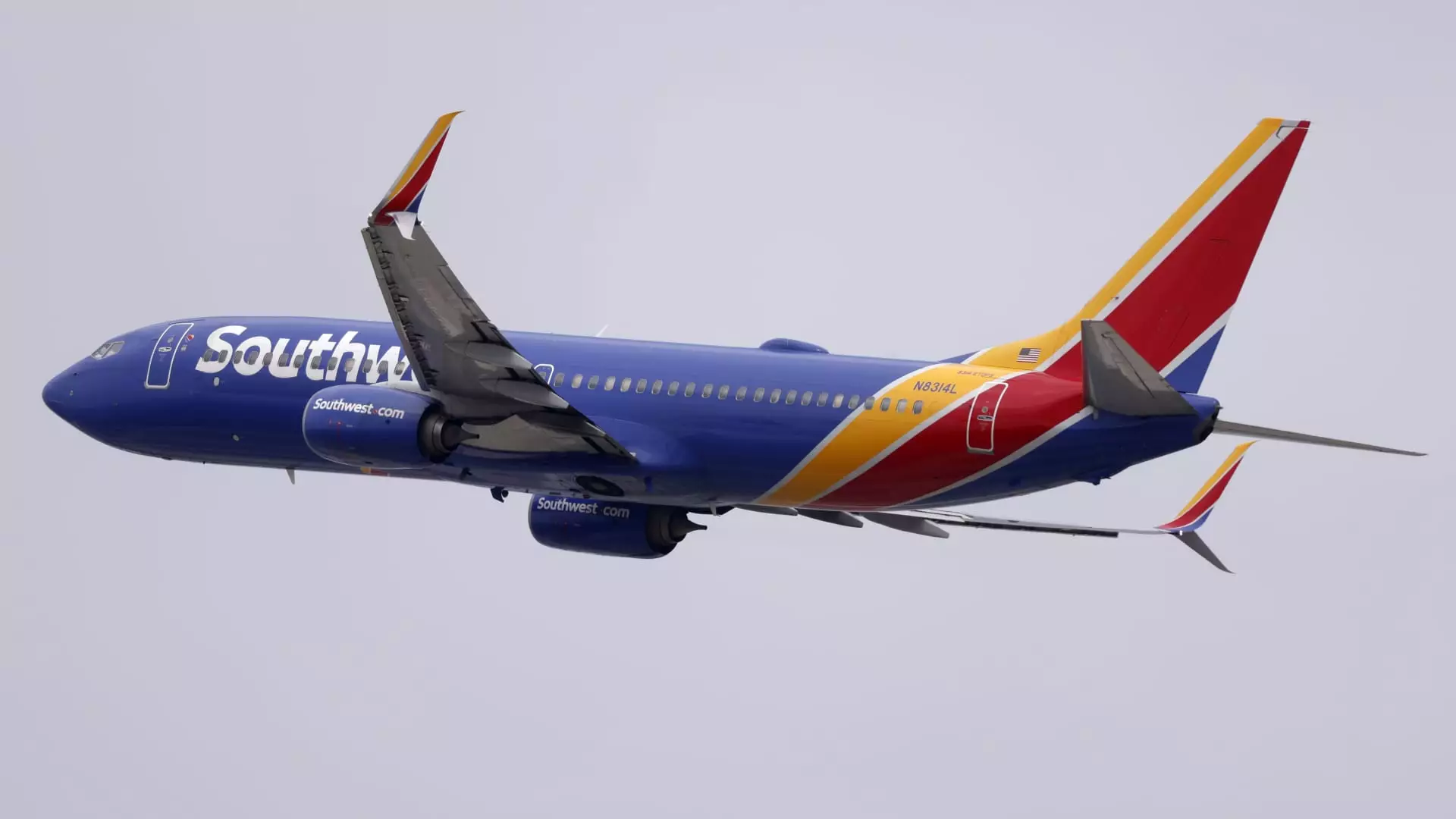In an unprecedented move, the Department of Transportation (DOT) has initiated a lawsuit against Southwest Airlines, signaling a significant shift in how airlines are held accountable for operational inefficiencies. This legal action follows a fine of $2 million previously imposed on JetBlue Airways, further tightening the grip of regulatory measures under the Biden administration. The DOT is intensifying efforts to protect consumers from the frustrations associated with chronically delayed flights, which have become a rampant issue for many passengers.
At the heart of this lawsuit lies the definition of a “chronically delayed” flight, which the DOT categorizes as flights that operate at least ten times a month and arrive late by more than 30 minutes more than half the time. The data shared by the DOT reveals alarming statistics: during a five-month span from April to August 2022, certain Southwest routes from Chicago Midway to Oakland and from Baltimore to Cleveland experienced delays nearly 200 times. The airline reportedly accounted for over 90% of these disruptions, leading to questions about its operational integrity and customer service commitment.
The essence of the DOT’s argument is that airlines must take responsibility for their scheduling practices. According to the agency, when a flight is consistently delayed, the prudent course is to adjust the flight schedule accordingly. The lawsuit contends that Southwest failed to take these necessary actions, continuing to market its flights despite their ongoing unreliability. This behavior is particularly egregious as it not only inconveniences travelers but also undermines trust in the airline industry as a whole. The DOT asserts that these practices have caused considerable harm to customers, who plan their travel based on schedules that the airline knows to be unreliable.
In response to the lawsuit, Southwest Airlines expressed disappointment, highlighting that the flights in question occurred over two years ago and emphasizing its operational success over the years. The airline cites that it has conducted over 20 million flights without any violations of the DOT’s chronically delayed flight policy, arguing that the recent claims lack credibility. This defensive posture illustrates the ongoing tension between consumer expectations and operational realities in an industry that has struggled with delays exacerbated by broader systemic issues, including staffing shortages and weather-related disruptions.
The DOT’s actions against Southwest and the fine levied against Frontier Airlines serve as warning signals for the entire airline industry. With a fine of $650,000 imposed on Frontier for similar reasons, the message is clear: regulatory bodies are stepping up enforcement and are willing to impose penalties to safeguard consumer interests. If airlines do not adapt and prioritize reliable service, they risk facing harsher repercussions in the future.
As consumer advocacy continues to rise, it will be crucial for airlines to reassess their practices and embrace a culture of transparency and accountability. The growing scrutiny from the DOT not only reflects changing regulatory landscapes but also highlights an evolving travel market where customer experiences must be prioritized to restore trust and confidence in air travel.


Leave a Reply